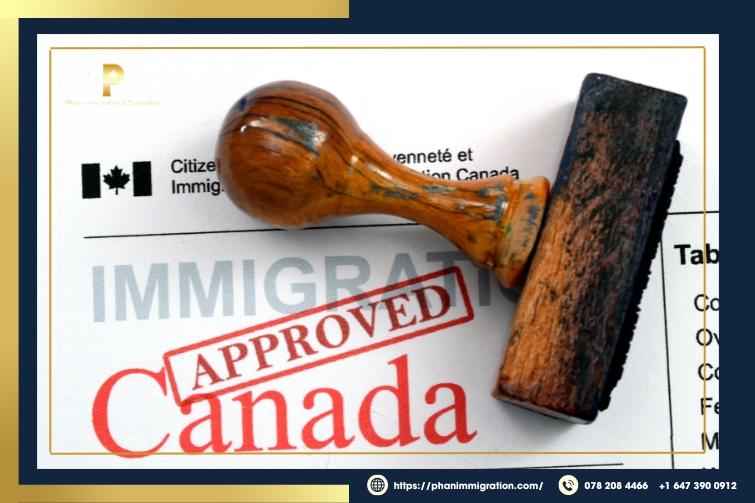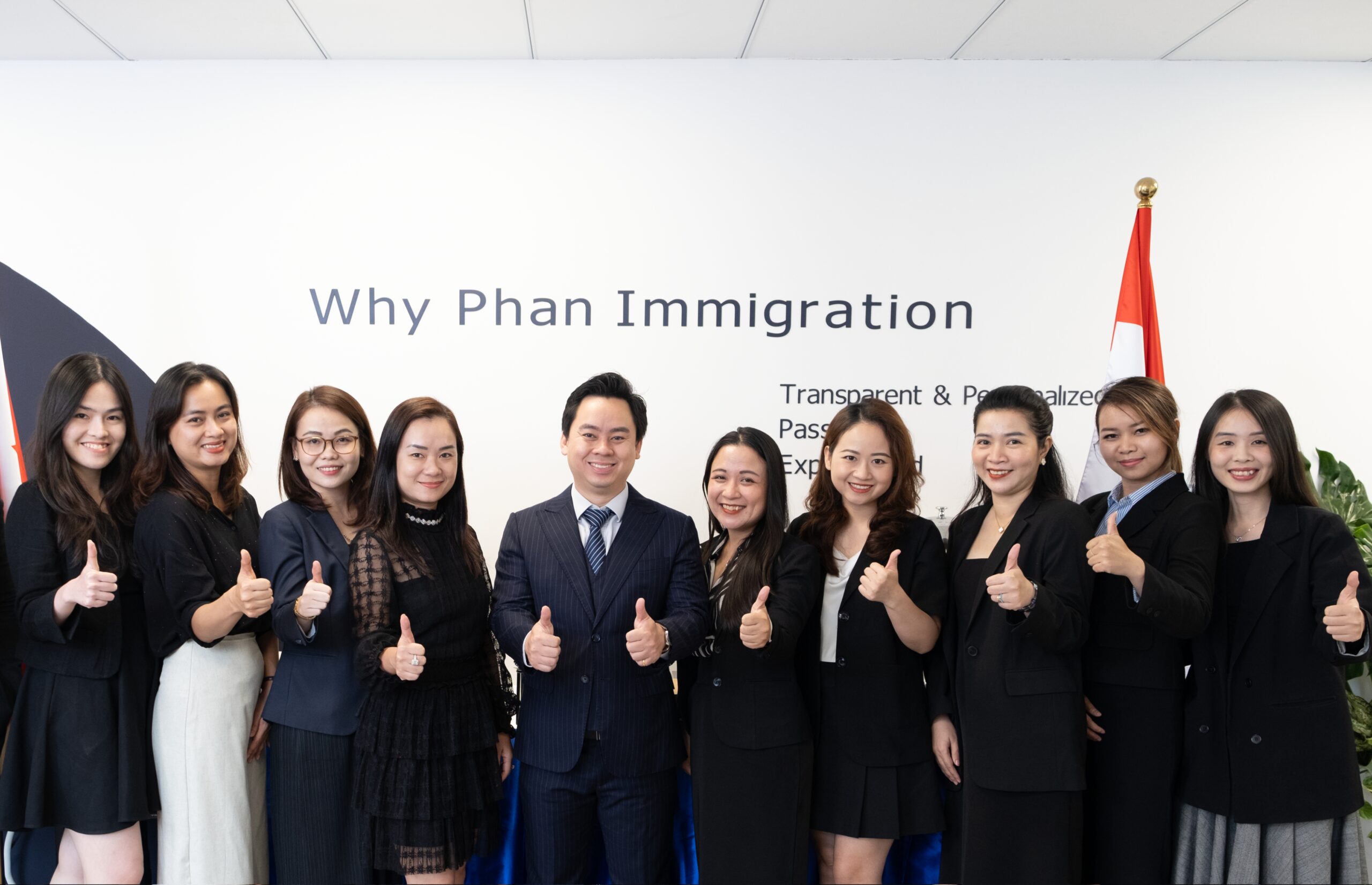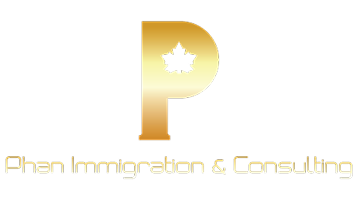Did you know that the Federal Skilled Trades Program (FSTP) is currently the fastest pathway to immigrate to Canada for skilled workers with high expertise? No higher education or significant financial resources are required, as FSTP focuses on your practical skills and work experience. Let’s dive deeper into this high-skilled immigration program with Phan Immigration and turn your Canadian dream into reality!
Overview of the FSTP Program in Canada
In 2013, the Immigration, Refugees and Citizenship Canada (IRCC) launched the Federal Skilled Trades Program (FSTP) as one of the three streams under Express Entry, alongside the Federal Skilled Worker Program and the Canadian Experience Class (CEC). The goal of the program is to address the increasing demand for skilled labor in industries facing workforce shortages, thereby promoting Canada’s economic growth and diversifying the labor force.

This program is one of three federal economic immigration streams managed under the Express Entry Canada system. According to the latest Permanent Residence Plan, the Canadian government aims to welcome 395,000 new permanent residents by 2025, with 124,680 spots allocated for the Express Entry streams.
A key highlight of the FSTP is its focus on skills and work experience in trades that are in high demand across Canada, rather than on high levels of education or significant financial assets, which are often requirements for other programs. This program offers a fast and effective immigration route for qualified tradespeople worldwide, ensuring they can quickly integrate and contribute their professional skills to Canadian society.
Advantages of the Federal Skilled Trades Program (FSTP)
The Federal Skilled Trades Program (FSTP) offers numerous benefits for applicants:
- Fast processing: You can get your Permanent Resident (PR) card in as little as six months after successfully submitting your FSTP application.
- Lower CRS score requirement: FSTP applicants often have a lower Comprehensive Ranking System (CRS) score than other candidates because they don’t need to provide proof of education. Additionally, Immigration, Refugees and Citizenship Canada (IRCC) holds Express Entry (EE) draws specifically for FSTP candidates. Being in the Express Entry pool also increases your chances of getting a Provincial Nominee Program (PNP) invitation, which adds 600 Canada CRS points and significantly boosts your likelihood of success through EE.
- Valuable Canadian experience: If you are an FSTP candidate with prior work experience in Canada, you’ll have a greater chance of success in the Canadian job market. IRCC also awards additional CRS points for previous work or study experience in Canada, which gives you a major advantage when applying for permanent residency.
- Flexibility: FSTP is a flexible program that doesn’t require high-level academic degrees or significant financial resources; it focuses on practical skills. In contrast, the Canadian Experience Class (CEC) program is for those who have accumulated at least one year of work experience in Canada.
Requirements to Participate in the FSTP Program
To participate in the Federal Skilled Trades Program (FSTP), applicants must meet the following conditions:
- Valid Skilled Work Experience: This experience must fall within a single NOC (National Occupational Classification) group and belong to one of the following NOC categories:
- Major Occupation Groups (excluding NOC subcategory 726), 73, 82, 93, or 93 (excluding NOC subcategory 932).
- Minor Occupation Group 6320.
- Occupational Unit 62200.
- You must demonstrate that you have performed:
- The actions described in the primary duties of the NOC job description.
- The majority of the key tasks listed in the NOC.
- Met the work requirements for that skilled trade as outlined in the NOC.
- A paid position (wage or commission), excluding voluntary work or unpaid internships.
- This work experience must have been gained in a country where you are eligible to practice.
- Applicants must have at least 2 years of full-time work experience (or a total of 3,120 hours) in a skilled trade within the last 5 years before applying.
- Work hour calculations:
- Full-time hours in one job: up to 30 hours/week for 24 months = 2 years full-time (3,120 hours).
- Equal part-time hours: e.g., 15 hours per week for 48 months = 2 years full-time (3,120 hours). You may work multiple part-time jobs to meet this hour requirement. Any hours over 30 hours/week will not be counted.
- Full-time hours across multiple jobs: 30 hours/week for 24 months across multiple jobs = 2 years full-time (3,120 hours).
- Work experience gained during a student’s study period is not counted.
- Valid Job Offer:
The job offer must be from a single employer, and it must be:- Continuous, not seasonal.
- Offering a clear salary.
- Full-time (at least 30 hours per week).
- For a minimum of 1 year from the date you are granted a permanent resident visa.
- In a TEER 0, 1, 2, or 3 occupation according to the NOC classification system.
- To learn more about immigrating to Canada through FSTP, ensure you meet the work experience and valid job offer requirements.
- Alternatively, Possession of a Valid Trade Certification Issued by a Province, Territory, or the Federal Government of Canada:
- Applicants who have passed a certification exam for a skilled trade.
- Applicants who meet all the requirements to practice in the province or territory that issued the certification.
- Provide Proof of Language Proficiency:
- You must take a language test approved by IRCC or meet the minimum language requirements (English or French). Specifically, CLB 5 for listening and speaking skills, and CLB 4 for reading and writing skills.
- Proof of Financial Sufficiency:
- Applicants must demonstrate sufficient funds to support themselves and their family in Canada. However, proof of funds is not required if you have a valid job offer from a Canadian employer and are legally authorized to work in Canada.
- Eligibility for Entry to Canada: Applicants must be allowed entry into Canada.
- Plan to Reside in Canada:
Applicants must have a plan to settle in Canada, except for the province of Quebec, as it has its own skilled worker program. If you are nominated by a province, you must settle in that province (or territory).

Separate Draws for FSTP Candidates
The separate draws for candidates in the Federal Skilled Trades Program (FSTP) within the Express Entry system of Canada are as follows:
| Date | Draw Type | Invitations Issued | CRS Score of Lowest-Ranked Candidate Invited |
| 6/8/2020 | Federal Skilled Trades | 250 | 415 |
| 16/10/2019 | Federal Skilled Trades | 500 | 357 |
| 15/5/2019 | Federal Skilled Trades | 500 | 332 |
| 24/9/2018 | Federal Skilled Trades | 400 | 284 |
| 30/5/2018 | Federal Skilled Trades | 500 | 288 |
| 1/10/2018 | Federal Skilled Trades | 505 | 241 |
| 26/5/2017 | Federal Skilled Trades | 400 | 199 |
Application Process for the FSTP Program in Canada
You can refer to the application process for the Federal Skilled Trades Program (FSTP) immigration program as follows:
Step 1: Confirm Eligibility
Applicants need to carefully review the conditions of the Federal Skilled Trades Program (FSTP) Canada listed in section 2 and determine if they meet the eligibility requirements. Additionally, to be allowed entry into Canada, you must avoid the following violations:
- Being considered a threat to national security in Canada.
- Violating human rights or international laws.
- Having a criminal record.
- Participating in or having connections with organized crime groups.
- Your health posing a danger to public health or safety.
- Your health potentially placing excessive demands on medical or social services in Canada.
- Being deemed financially incapable of settling in Canada (not applicable to skilled trade applicants).
- Providing false information or documents, or concealing important details in your application.
- Failing to comply with Canada’s immigration laws and regulations in the past.

Step 2: Create an Online Profile in the Express Entry System
Next, applicants need to create an online profile in the Express Entry system. In the profile, you will provide information about your skills, work experience, education, language proficiency, and other relevant details. It is important that the information entered in your profile is accurate and complete. Once completed, you will receive a CRS score.
Step 3: Join the Express Entry Pool
Having a profile on Express Entry means you have officially joined the Express Entry pool. Here, you will be ranked with other candidates based on your CRS score. Periodically, IRCC will conduct Express Entry draws and invite candidates with the highest rankings to apply for permanent residency.
Step 4: Receive an Invitation to Apply (ITA)
If your CRS score is among the highest in the Express Entry pool at the time of the draw, you will receive an Invitation to Apply (ITA) from IRCC. You must then submit a complete permanent residency application and required documents within 60 days from the date you receive the ITA.

Step 5: Prepare and Collect Required Documents
The next step is to gather the required documents for your permanent residency application, including:
- Passport/travel document.
- Educational credentials or Canadian Educational Credential Assessment (ECA) report for foreign qualifications.
- Proof of language proficiency or language test results.
- Proof of financial funds.
- Written Job Offer from a Canadian employer (if applicable).
- Provincial Nomination (if applicable).
- Police clearance certificate.
- Medical examination results.
- Children’s birth certificates (if applicable, for dependent children accompanying you).
- Marriage certificate (if married), divorce certificate (if divorced), common-law relationship form (if in a common-law relationship), death certificate (if widowed).
- Adoption certificate (if adopted).
Step 6: Pay Fees and Submit Application
Finally, you will pay the required fees and submit your application. The fees for the Federal Skilled Trades Program (FSTP) application include processing fees, biometric fees, and permanent resident rights fees. After completing the payment and verifying that all your information and documents are accurate, you can submit your application.
Step 7 – After Submission: Wait for Review and Completion of the Process
Your FSTP application will be processed within 6 months or faster, depending on the case. During this time, you should regularly monitor the status of your application to promptly provide any additional documents or information if requested.

Which System is the FSTP Program Part of in Canada’s Immigration Policy?
The Federal Skilled Trades Program (FSTP) is part of the Express Entry system, managed directly by the Canadian government. This program offers an excellent opportunity for skilled workers and their families to obtain permanent residency quickly, without the need for financial proof if a job offer is in place. It opens the door to a stable career and a high quality of life in Canada.
Common Questions about the FSTP Program
Can FSTP participants choose where to live in Canada?
No, FSTP participants can live almost anywhere in Canada, except Quebec, as this province has its own immigration system. When applying for the FSTP, you will select the province you plan to move to. However, once you receive permanent residency, you are free to live anywhere in Canada (except Quebec), unless you are nominated by a province, in which case you must live in the nominating province for a few years.
What are the benefits of receiving a provincial nomination?
Receiving a provincial nomination in the FSTP program offers significant advantages. This nomination will add 600 CRS points to your Express Entry profile, almost guaranteeing you will receive an Invitation to Apply (ITA) in the next draw. Furthermore, the provincial nomination letter strengthens your application and may expedite the review process.
Which occupations are eligible under the FSTP program?
Eligible occupations in the FSTP program include:
- NOC Code 72: Industrial, construction, electrical, and maintenance trades (excluding subcategory 726: Maintenance workers for heavy transport and equipment).a
- NOC Code 73: Equipment maintenance and operation occupations.
- NOC Code 82: Supervisors and trades in natural resources, agriculture, and related production.
- NOC Code 83: Occupations in natural resources, agriculture, and related production.
- NOC Code 92: Supervisors in manufacturing, production, utilities, and central control and processing operations.
- NOC Code 93: Occupations in central control and processing operations (Subcategory 932: Aircraft and aircraft component assembly and testing).
- NOC Code 6320: Chefs.
- NOC Code 62200: Retail support service supervisors.
The FSTP immigration program is an excellent opportunity for skilled workers who wish to experience a high quality of life in Canada. Contact Phan Immigration today for more detailed information on FSTP and how to make your Canadian dream a reality.







